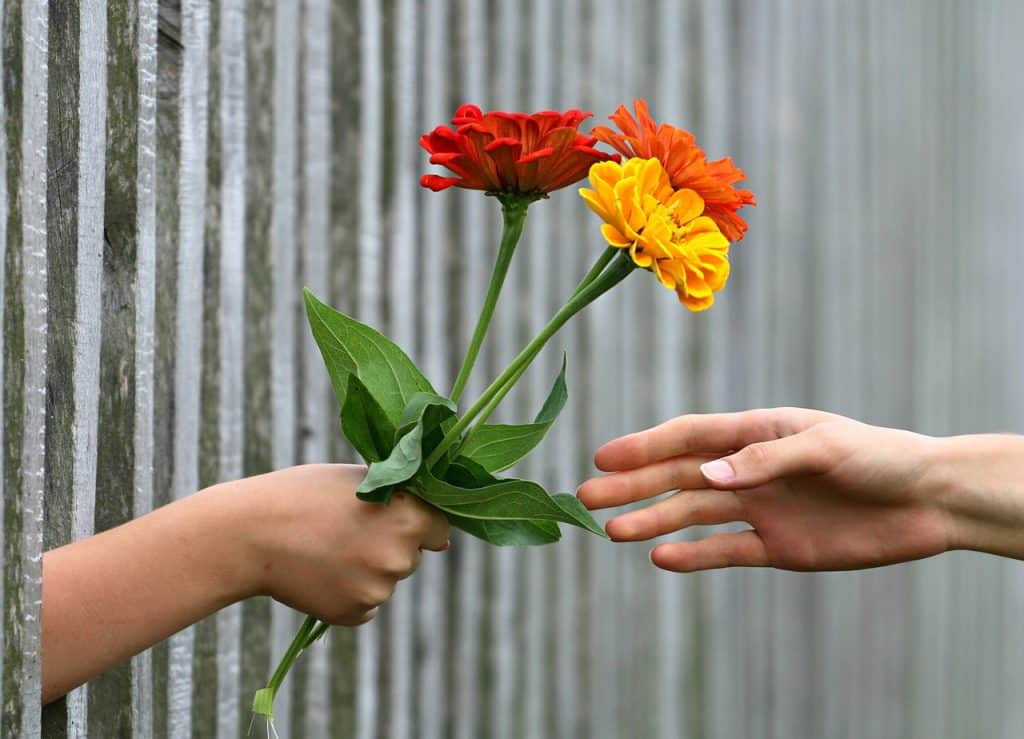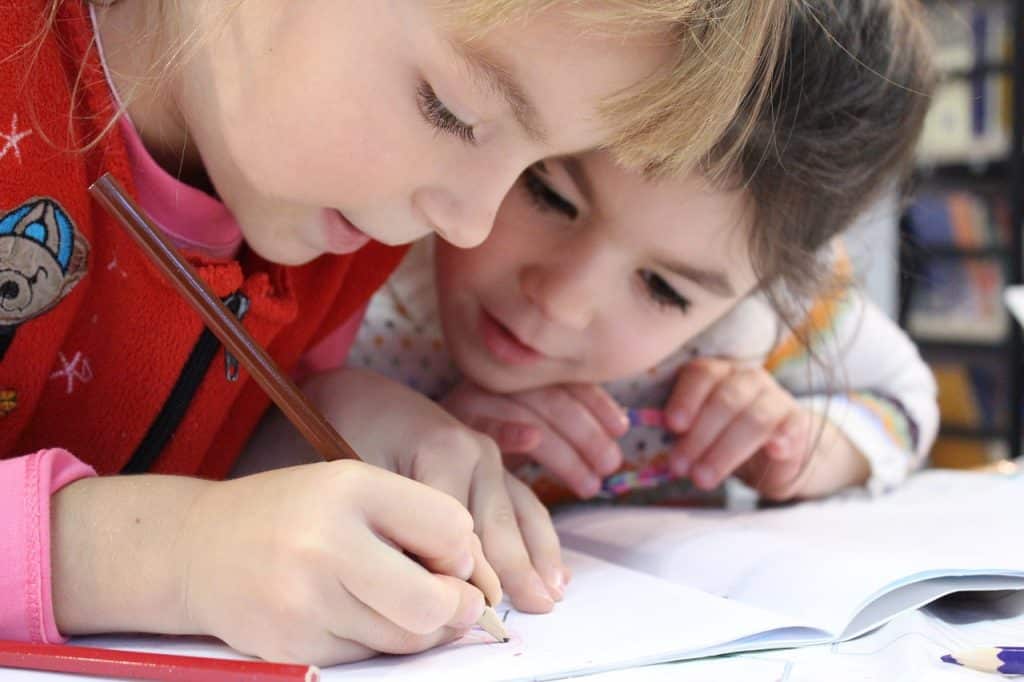The Western model of action emphasizes control and teaches us that power and control are important goals.
It actually teaches us the illusion of control. There are only two things in the world that are under our control:
1. Choosing how to feel about ourselves or how to perceive ourselves.
2. Our behavior depending on what we feel and how we perceive ourselves.
Everything else is beyond our control with one exception—our young children. We exercise some control over their behavior and also over what we teach them and how they learn how to feel about themselves. But after they grow up, we realize very quickly and painfully how weak our power over them was.
If we have no control over something, then we cannot be fully responsible for it.
How often do we take responsibility for others or for consequences that escape us? The notion of control is of particular importance in order to understand the pattern of existence and to gain self-respect. As long as we nurture the illusion of control and feel responsible for what gets away from us, we cannot be in touch with the reality of life and be masters of ourselves.
It is important to note
that number one of the two things mentioned above—choosing how to feel about yourself—does not determine "how you feel," nor "your feelings at all." How you feel about yourself is a choice and within your control.
Feelings are not a matter of choice and cannot be controlled.
We carry all our feelings with us everywhere and always. For example, we may feel sad without knowing why. The same external stimulus can cause different sensations. Let's say you're feeling perfectly normal, walking down a busy street, and you almost get hit by a car. You could feel anger, sadness, resignation, or a combination of these feelings. And if you're in a good enough mood, you might just be happy you didn't get bumped. Your feelings arise spontaneously and are not under your control.
You are in control of choosing how to feel about yourself, choosing to love yourself or not. Once you have made your choice, your behavior will follow your feelings. If you have chosen to love yourself, you will treat yourself with love and tenderness. You will be accepting, forgiving and attentive to your own personality. If you have chosen not to love yourself, or are unwilling to make a choice (which is also a kind of choice), your behavior will correspond to your upbringing and you will neglect yourself, criticize yourself, blame yourself, look for external reasons and you expect to be perfect. You decide how you treat yourself.
Being treated badly just because the world is hostile too is no excuse.
You cannot control how the world treats you.
However, the opposite is in your power. You can master your behavior not only towards yourself but also towards others. Remember, behavior is not a feeling. It is the conscious expression of feelings and is under your control.
Please note and remember that controlling others is not included in the list of things under your control. This is not an oversight, but a reality.
What is self-respect?
There are many definitions, but what they all have in common is the idea to value yourself. This implies loving each other, respecting each other, putting yourself and your needs first. Self-respect means standing your ground. Not only to love yourself, but also to constantly act with love and care towards your personality.
The best and easiest way to understand what self-respect means is to imagine that you love someone very much, you want to see them constantly, talk to them, spend time together. You think of this person with love and strive to do things that give them pleasure. To you, he is the most important thing in the world and you would do anything to make him understand. Now put yourself in the place of your loved one and treat yourself in the same way. This is self-respect.
Loving and taking care of yourself is the complete opposite of what we've been taught to think and do.
We have been taught to value others and/or external factors and to measure our self-worth by what we own or how much we are loved. Such is the characteristic of a weak Ego: our worth seems to be entrusted to someone else outside of us, and therefore escapes our control. When our self-worth depends on someone's love, on getting the right job, on making enough money, or on our "success," we run the serious risk of feeling insecure and ultimately experiencing a sense of failure. All that is external to us is temporary. It is not ours and we cannot keep it.
If our relationship to ourselves varies according to these external marks, if we feel valued only because we are loved or were lucky enough to be in the right place at the right time, what happens when all of this shakes and we lose our footing? Respect for one's own personality melts as a result of changes in external circumstances. We feel abandoned, depressed and worthless. It's crazy, even though it's usually the "normal" way of life. Everything changes! Why risk our self-respect for something that is outside of us?
Remember:
we can only control the feelings about ourselves and also our behavior based on them. If we choose to love and treat ourselves with love, to value our own personality, we will have control over ourselves. We should not lose self-respect.
A true test of its presence would be when nothing goes right in this crazy world that seems to be turned upside down, everything we hold dear slips away from us, and yet we love each other and know that we are loved. To treat ourselves with care, parental concern, and love when we are in a difficult situation or in pain, just as we would treat someone else in a similar situation - this is what it means to feel and show self-respect.
Why doesn't self-respect come naturally to me?
In all probability, it would not be so if parents, teachers, friends, who are also deprived of self-respect, did not take it away from us in the harshest way.
This is because the Western model is centered on power, control and achievement, and we have been excellent at embracing all things weak ego.
We have learned to worry about what others think of us, to please those we wish to influence. To believe that it is not us who are important and worthy, but the people who surround us. We have also been taught that if we love others selflessly, we will automatically perceive their needs, that to love others is to care for their needs. The reverse is also supposed to be true, that is, those who love us will meet our needs.
We have been fed something that is simply not true.
Our educators have not even given us the opportunity to choose whether to learn self-respect, which is the exact opposite of the model described above.
We were told in childhood that loving yourself is selfish,
that it leads to self-centeredness and narcissism, and that in such a case no one will wish to belong to our environment. The church, the parents, the school are without exception institutions of control — control over us! Institutions need people who believe in them and follow their rules. The view that man is not naturally good and must be controlled to fit into society has given rise to the fear of allowing individuals to love themselves and believe that they would be good if left unsupervised . The Western model that instills in us the principles of the weak ego is a belief model, offering us a way to seem to control the feelings and behavior of others by caring for them and loving them more than ourselves. It just doesn't work.
ONLINE VIDEO COURSE: CONFIDENCE AND SELF-ESTEEM - Author's program by Milena Goleva
If we cannot or have chosen not to love ourselves, how then can we believe that we could be loved?
If all our love and respect is focused on others, how can we feel whole, complete and loved by ourselves? And if we don't feel good about ourselves, how do we bring out our best selves? No one can be complete by neglecting his own personality.
Finally, if we follow this pattern and love others more than ourselves, and if in return we do not receive from them as much as we give, how can we not feel cheated and hurt? People who feel cheated, abused, taken advantage of are not easily loved, either by others or by themselves. By expecting others to love us and take care of our needs, we place an overwhelming burden on them. No one else can know exactly what we need at any given moment! No one is capable of loving us the way we want! No one can do for us what we are capable of and what we need.
Does self-respect mean selfishness?
Literally, yes. But only if selfishness is defined as self-care, or "self-love." According to the dictionary definition, selfishness is “too big concern for one's own well-being'. I emphasize too big because we usually interpret it as any kind of concern.
The Western model has taught us that being selfish is terrible, and in many ways the concept of selfishness seems to be confused with self-centeredness.
Egocentric is defined as “an inert or unmoving, center around which everything else moves; engaged in or concentrated only on one's own affairs'.
What is the difference between "egoism" and "self-centeredness"?
selfishness, myself-love, in the sense of myself-respect, characterizes your relationship with yourself. Self is not the center around which others revolve. You don't expect anyone else to see you as the center of anything. Self-love is a manifestation that affects you personally. The emphasis is on taking care of yourself. We can stop striving to be the Sun around which others revolve and be content to be stars shining with our own light.
It seems that no other idea is so hard to grasp, so controversial, and so deeply ingrained in our minds as that being selfish is bad.
The paradox is that the people we think of as selfish - those who are too concerned with their own well-being, narcissistic personalities, are some of the most insecure and self-centered.
They are completely devoid of self-respect and cannot take care of their own needs or love themselves. They spend their time focusing on how to control others and be the center of their lives. Their energy is directed outward and they feel devastated when they are finally abandoned. These so-called egoists embody all the signs of a weak ego and are the complete opposite of self-loving people loaded with self-respect.
To love ourselves, we must know ourselves.
In order to satisfy our own needs and desires, we must first know what we need and want. How can this happen if we do not focus attention on ourselves? Be self-loving. Take care of your precious self. No one else can do it, at least not the way you want and need it.
I love and like myself - guided meditation by Milena Goleva will teach you to love yourself and your own inner essence!
Can excessive self-esteem lead to self-centeredness?
No. Self-respect cannot be excessive. It is a process, not a goal, nor an achievement. It is something you practice every day. Self-esteem is a feeling about yourself combined with a behavior towards yourself. It means feeling safe, loved, strong and capable. Sometimes you will feel less secure, loved, or capable. These are the times when you will be more vulnerable as far as the "weak ego" is concerned, and you will feel the desire for others to put you at the center of their lives and satisfy your needs.
Egocentrism occurs when there is not enough self-respect.
The best resistance to the need for others to take care of you is to give yourself even more than you want to receive. If you need attention, be generous and give it to yourself. If you need to hear compliments and praise, praise and flatter yourself. Tell yourself exactly what you long to hear. If you don't believe yourself, how would you believe it when someone else says it?
By showering ourselves with what we need—be it praise, gifts, or kindness, to feel content, whole, and secure—we are more likely to treat others with love.
We have more energy to do what is necessary for ourselves and others. We accept our own mistakes more easily, as well as those of others. Everything seems to become simpler and things are arranged better. We don't get upset if people don't do or say what we want because we feel invulnerable.
Perhaps this paradox could be explained metaphorically.
Imagine that everyone has inside of them two boxes of biscuits. One is for ourselves, and the other is for the people around us. We have been taught to fill the box for others, and we bake loads of cookies to that end. We have been brought up not to put in our own, or even think about such a thing. According to what we've been instilled in us, if we keep baking cookies for others, our box will be full because they're supposed to take care of us and we'll all be happy. But in reality it is not. Our box is usually empty, and if someone does drop something in it, it's not exactly what we want wanted at the given moment. No wonder we start to feel deprived, resentful, and angry because we watch others eat the cookies we baked.
The way out of the paradox is as simple as this:
fill your own box with exactly what you want and put the rest in the other. Keep your boxes full. Teach your family members to think of their boxes first. So everyone will win.
How can I learn self-respect?
The surest way to learn something new is to find a good teacher. Self-esteem teachers are not easy to find. Of course, not all therapists, clergy, or counselors can teach you how to love yourself. You'll need a role model who practices what he teaches you—someone who actually knows how to love yourself and also how to pass that skill on to you. Self-esteem is a skill that can be learned. Few are those who reach it naturally. Remember, you were taught not to love yourself and now you need to readjust.
Imagine that you are going to learn some new skill. If you are really determined and need it, you will succeed. It is much easier to learn something for the first time than to have it wrong and then make corrections. For example, you studied a foreign language, but after a few years you discovered that your teacher has a terrible accent and, accordingly, your pronunciation is incorrect. To fix what's been done, you have to start over. This is much more difficult than learning something right the first time. Much more difficult, but not impossible if your intention is firm.
Self-esteem is relearning what to think about yourself and how to treat your personality with love.
It would undoubtedly be far easier and more natural to learn the skill of self-love at an early age when the process of perception is unencumbered. Unfortunately, this does not happen to most of us because we lack the right teachers and role models. So we have to accept that we have been taught wrongly, even though we are not to blame for it, and neither are our teachers who have also been wrongly taught. And to get angry and resentful is to waste time and prolong the learning of the skill in the present.
Start with the unwavering belief that you must learn self-respect.
If you really want it, you will succeed. When one is very desperate, one can learn anything. Be desperately determined. Then find yourself role models - people with clearly expressed self-esteem.
- They won't talk to you about how much they love themselves or how famous they are.
- It will show in their calm, unobtrusive power
- on encouraging and encouraging behavior towards others.
- Such individuals appear confident and balanced,
- admit and often laugh at their own weaknesses and mistakes.
- They do not make fun of others and do not judge.
- They are more tolerant and accepting of themselves and others.
- One feels good with them.
It is very important for you to be in contact with people who accept you as you are and encourage you to feel good about yourself.
Once you have found your role models, which may include a therapist, teacher, relative, or friend, watch them carefully. How do they handle rejection? Do they strive to be perfect? What do they do when they make a mistake? How do they deal with the many injustices in life? Ask them. Watch them. Listen to them and learn from them. But don't expect them to know all the answers. Nor to shoulder your pain or change you. Good role models are patient and loving teachers whose self-esteem does not depend on you. They are not codependent.
And finally, be willing to practice. And make mistakes. And be imperfect. Self-esteem is a human quality and a lifelong pursuit. It is not a "quick-acting pill". It is a way of being in the world, allowing you to know yourself and take care of yourself.
Source: "Pocket Psychotherapist" by Suzanne McMahon, Colibri Publishing
Read also: How not to take things personally








Facebook Comments